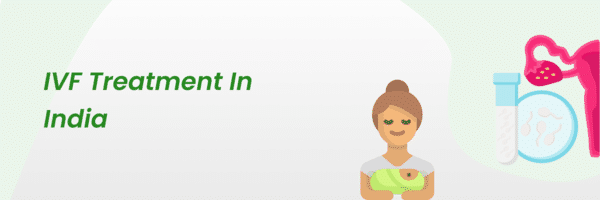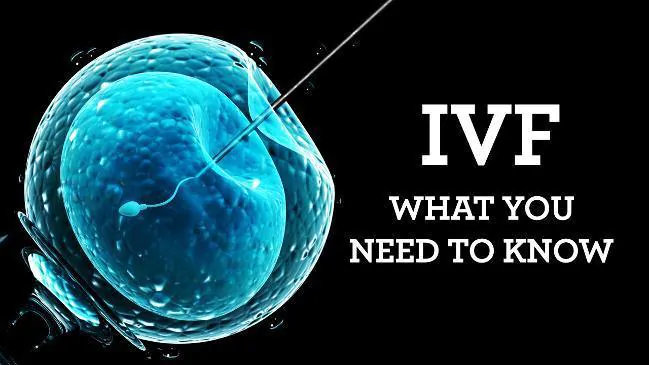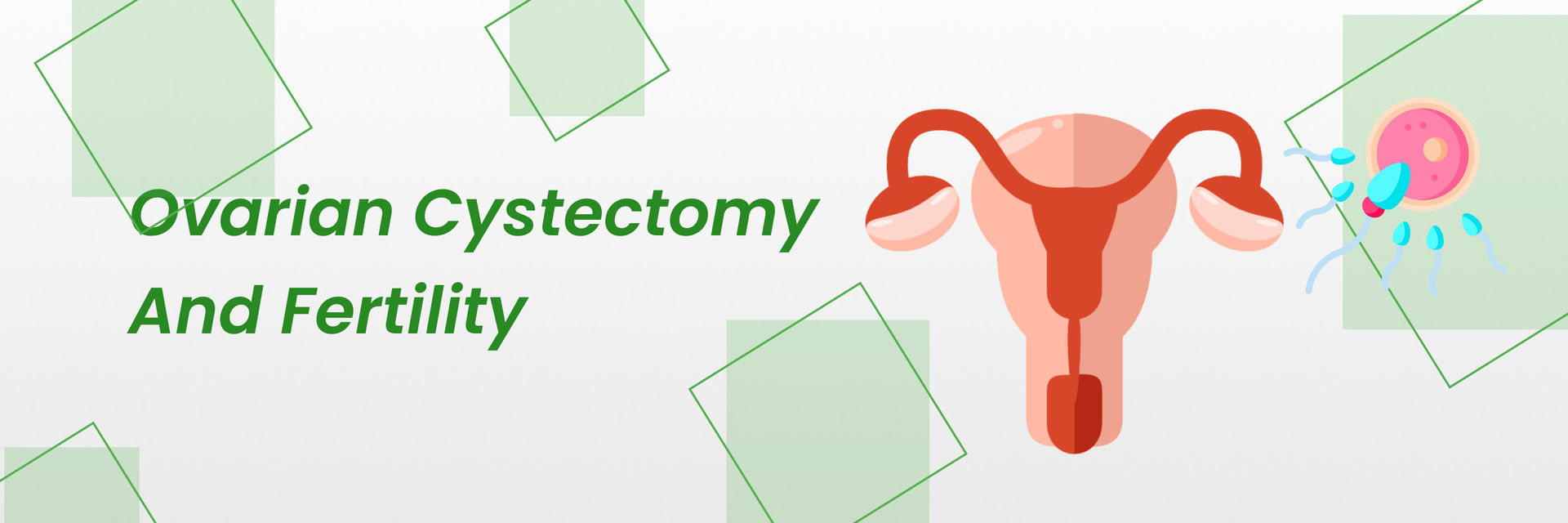अवलोकन
अस्थानिक गर्भावस्था एक दुर्लभ और संभावित रूप से जीवन के लिए खतरनाक स्थिति है। इस स्थिति में, एक निषेचित अंडा गर्भाशय के बाहर प्रत्यारोपित हो जाता है, ज्यादातर फैलोपियन ट्यूब में। जैसे-जैसे भ्रूण बढ़ता है यह फैलोपियन ट्यूब को फटने का कारण बनता है। इससे आंतरिक रक्तस्राव और अन्य जटिलताएं होती हैं। अस्थानिक गर्भावस्था के गंभीर स्वास्थ्य परिणामों को रोकने के लिए तत्काल चिकित्सा की आवश्यकता होती है।
आपके दिमाग में यह सवाल आ रहा होगा, "आईवीएफ में अस्थानिक गर्भावस्था कितनी आम है और यह इतनी आम क्यों है?" अपने सभी उत्तर पाने के लिए नीचे पढ़ें!
क्या अस्थानिक गर्भावस्था IVF के साथ सामान्य है?
एक्टोपिक गर्भावस्था आईवीएफ से जुड़ी सबसे आम जटिलताओं में से एक है। एक अध्ययन के अनुसार, आईवीएफ में अस्थानिक गर्भावस्था की घटना दर लगभग 2-5% है। यह प्राकृतिक गर्भाधान में अस्थानिक गर्भावस्था की तुलना में बहुत अधिक दर है।
आईवीएफ में अस्थानिक गर्भावस्था के अधिक सामान्य होने का कारण पूरी तरह से स्पष्ट नहीं है। ऐसे कई कारक हैं जो आईवीएफ के दौरान एक्टोपिक गर्भावस्था के इस बढ़ते जोखिम में योगदान कर सकते हैं। एक संभावित व्याख्या आईवीएफ में फर्टिलिटी दवाओं का उपयोग है। ये दवाएं फैलोपियन ट्यूब के सिकुड़ने और निषेचित अंडे को स्थानांतरित करने के तरीके को बदल देती हैं। इससे अंडा फैलोपियन ट्यूब में फंस जाता है और गर्भाशय के बजाय वहीं प्रत्यारोपित हो जाता है।
एक और कारण हो सकता है, भ्रूण का फैलोपियन ट्यूब के बहुत करीब स्थानांतरण। इससे भ्रूण के वहां प्रत्यारोपित होने की संभावना बढ़ जाती है। आईवीएफ के दौरान ट्यूबल ब्लॉकेज या डैमेज से एक्टोपिक प्रेग्नेंसी का खतरा बढ़ जाता है।
आईवीएफ में अस्थानिक गर्भावस्था अधिक सामान्य क्यों है?
एक्टोपिक प्रेग्नेंसी ट्रस्ट के अनुसार, एक्टोपिक प्रेग्नेंसी का खतरा उन महिलाओं में अधिक होता है, जिनका आईवीएफ जैसे फर्टिलिटी ट्रीटमेंट हुआ हो। ऐसा इसलिए है क्योंकि प्रजनन उपचार से कई गर्भधारण की संभावना बढ़ जाती है। चूंकि अधिक भ्रूण स्थानांतरित किए जाते हैं, इसलिए अस्थानिक गर्भावस्था का जोखिम अधिक होता है। आईवीएफ दवाएं भी फैलोपियन ट्यूब में बदलाव का कारण बनती हैं, जिससे एक्टोपिक गर्भावस्था का खतरा बढ़ जाता है।
इसे बेहतर ढंग से रोकने के लिए स्थिति के कारण को जानना बहुत महत्वपूर्ण है। नीचे, हमने अस्थानिक गर्भावस्था के संभावित कारणों को सूचीबद्ध किया है।
आईवीएफ कैसे अस्थानिक गर्भावस्था का कारण बनता है?
आईवीएफ में अस्थानिक गर्भावस्था का सटीक कारण पूरी तरह से समझा नहीं गया है। फैलोपियन ट्यूब और भ्रूण स्थानांतरण तकनीकों में असामान्यताएं संभावित कारण माने जाते हैं। आईवीएफ में, भ्रूण को फैलोपियन ट्यूब को दरकिनार कर सीधे गर्भाशय में स्थानांतरित कर दिया जाता है। हालाँकि, कुछ मामलों में, स्थानांतरित भ्रूण फैलोपियन ट्यूब में चला जाता है और वहाँ प्रत्यारोपित हो जाता है। इसका परिणाम एक अस्थानिक गर्भावस्था में होता है। इसके अलावा, यदि स्थानांतरित भ्रूण खराब गुणवत्ता का है या अंतर्निहित स्थिति गर्भाशय या फैलोपियन ट्यूब को प्रभावित करती है, तो यह आईवीएफ के दौरान एक्टोपिक गर्भावस्था के जोखिम को बढ़ाता है।
मत रुकें! यह जानने के लिए पढ़ें कि आप अस्थानिक गर्भावस्था से कैसे बच सकते हैं।
क्या आईवीएफ से अस्थानिक गर्भावस्था से बचा जा सकता है?
अस्थानिक गर्भावस्था को पूरी तरह से रोकने का कोई गारंटीकृत तरीका नहीं है। लेकिन, कुछ कदम हैं जो आईवीएफ में अस्थानिक गर्भावस्था को रोकने में मदद कर सकते हैं:
सुनिश्चित करें कि आपका डॉक्टर भ्रूण स्थानांतरण प्रोटोकॉल में पर्याप्त अनुभवी है। उचित उपाय करने से अस्थानिक गर्भावस्था की संभावना को कम करने में मदद मिलेगी।
यह सुनिश्चित करने के लिए पूरी तरह से स्क्रीनिंग प्रक्रिया से गुजरें कि आपको कोई अन्य स्थिति नहीं है जो एक्टोपिक गर्भावस्था का कारण बन सकती है।
आईवीएफ रोगियों में अस्थानिक गर्भावस्था के लक्षण कैसे भिन्न हो सकते हैं?
सामान्य तौर पर, अस्थानिक गर्भावस्था के लक्षण सभी महिलाओं के लिए समान होते हैं। इससे कोई फर्क नहीं पड़ता कि गर्भाधान प्राकृतिक था या आईवीएफ के माध्यम से।
अस्थानिक गर्भावस्था के सामान्य लक्षणों में शामिल हैं:
- योनि से खून बहना
- पेट में दर्द
- कंधे का दर्द
- चक्कर आना
- बेहोशी
हालांकि, आईवीएफ रोगियों को कुछ अनोखे लक्षणों का अनुभव हो सकता है, जैसे:
- भ्रूण स्थानांतरण के स्थल के आसपास बेचैनी या दर्द
- एचसीजी हार्मोन का ऊंचा स्तर।
- रक्तस्राव या ऐंठन
क्या आईवीएफ अस्थानिक गर्भावस्था के लिए उच्च जोखिम है?
प्राकृतिक गर्भाधान की तुलना में, आईवीएफ एक्टोपिक गर्भावस्था के थोड़े अधिक जोखिम से जुड़ा है। यदि भ्रूण का स्थानांतरण ठीक से नहीं किया जाता है, तो इसका परिणाम भ्रूण के बाहर आरोपण हो सकता है। आईवीएफ तकनीकों में प्रगति और रोगियों की सावधानीपूर्वक निगरानी आईवीएफ के दौरान अस्थानिक गर्भावस्था के जोखिम को कम करने में मदद कर सकती है।
अब जब आप इसके कारणों और लक्षणों को जान गए हैं, तो आपको यह भी पता होना चाहिए कि इसके लिए कौन से उपचार उपलब्ध हैं। बहुमूल्य अंतर्दृष्टि के लिए आगे पढ़ें!!
आईवीएफ रोगियों में अस्थानिक गर्भावस्था के उपचार के विकल्प क्या हैं?
आईवीएफ रोगियों में अस्थानिक गर्भावस्था के विभिन्न उपचार विकल्पों में शामिल हैं:
- चिकित्सा उपचार- इसमें अस्थानिक गर्भावस्था को समाप्त करने के लिए मेथोट्रेक्सेट जैसी दवाओं का उपयोग शामिल है। यह विधि अस्थानिक गर्भावस्था के शुरुआती चरणों के दौरान प्रभावी होती है और शरीर में एचसीजी का स्तर भी अधिक नहीं होता है। आपको ध्यान देना चाहिए, यह तरीका हमेशा प्रभावी नहीं होता है और कुछ मामलों में सर्जरी की आवश्यकता हो सकती है।
- सर्जिकल उपचार- इसमें लैप्रोस्कोपिक सर्जरी के माध्यम से एक एक्टोपिक गर्भावस्था को हटाना शामिल है। यदि फैलोपियन ट्यूब क्षतिग्रस्त हो जाती है, तो उसे भी सर्जरी के दौरान हटा दिया जाता है। उन लोगों के लिए सर्जरी की सिफारिश की जाती है जो अस्थानिक गर्भावस्था के गंभीर लक्षणों का सामना कर रहे हैं या जिनके एचसीजी स्तर बहुत अधिक हैं।
- अपेक्षित प्रबंधन- इसमें रोगी के एचसीजी स्तरों और लक्षणों की बारीकी से निगरानी करना शामिल है, यह देखने के लिए कि क्या अस्थानिक गर्भावस्था अपने आप ठीक हो जाती है। यह आमतौर पर केवल उन मामलों में अनुशंसित किया जाता है जहां अस्थानिक गर्भावस्था बहुत छोटी होती है और रोगी को गंभीर लक्षणों का अनुभव नहीं होता है।
सबसे बड़ा सवाल यह रहता है कि क्या एक्टोपिक गर्भावस्था के साथ आईवीएफ सफल होगा।
अस्थानिक गर्भावस्था के बाद आईवीएफ कितना सफल है?
अस्थानिक गर्भावस्था के बाद आईवीएफ की सफलता दर अलग-अलग होती है। अध्ययनों ने बताया है कि अस्थानिक गर्भावस्था के बाद आईवीएफ से गुजरने वाले जोड़ों के लिए सफलता दर 40% -50% है।
एक सफल आईवीएफ गर्भावस्था होने की संभावना कई कारकों पर निर्भर करती है जैसे:
- रोगियों की आयु
- अंतर्निहित कारण यदि कोई हो





